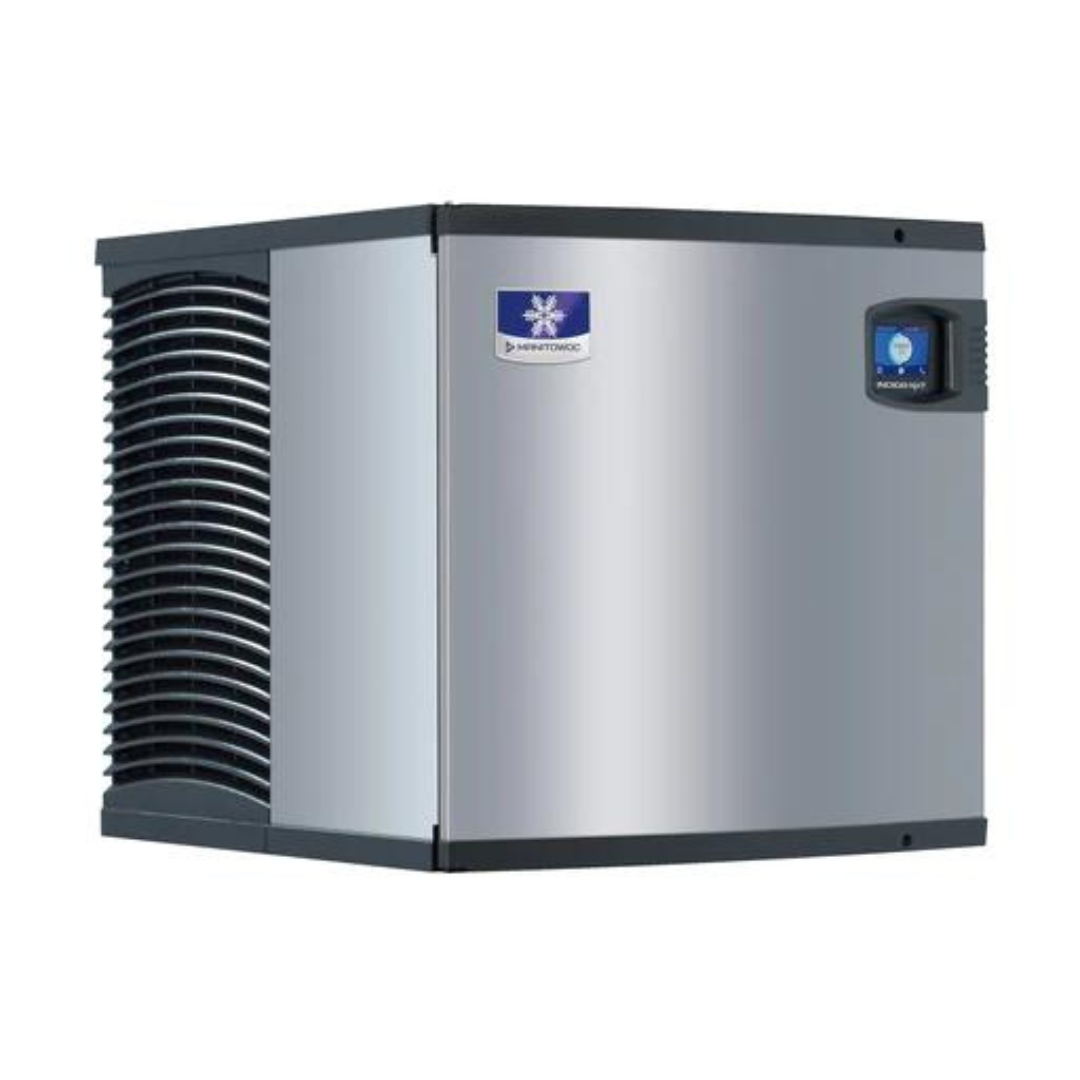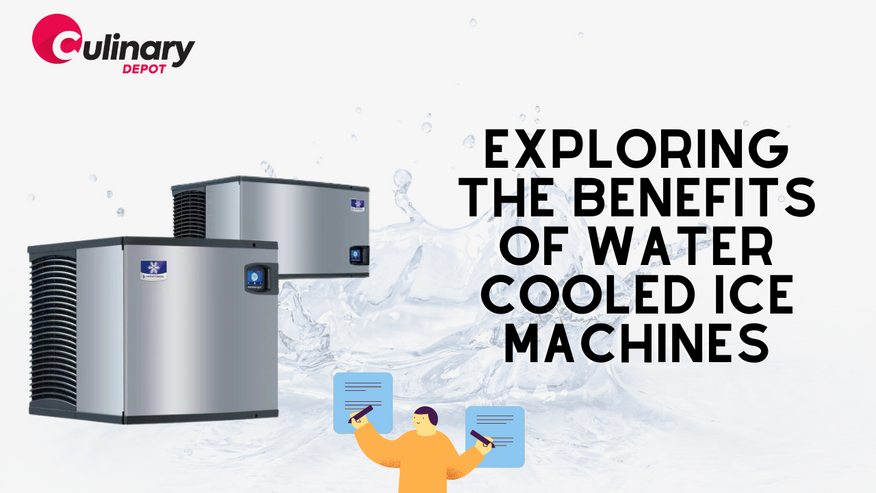Aug 10th 2023 - Team Member
Exploring the Advantages of Water-Cooled Ice Machines in Commercial Kitchens
In the dynamic world of commercial kitchens, where precision, efficiency, and reliability are paramount, the choice of equipment can significantly impact operational success. Among the diverse array of tools at a chef's disposal, one often overlooked but crucial component is the ice machine. In this article, we delve into the benefits of water-cooled ice machines, shedding light on their energy efficiency, operational advantages, and positive environmental impact.
Enhancing Efficiency with Water-Cooled Ice Machines
Water-cooled ice machines have emerged as a game-changer for establishments seeking optimal energy consumption. Unlike their air-cooled counterparts, which rely on external air to dissipate heat, water-cooled units employ water as a cooling medium. This results in more efficient heat transfer and reduced strain on the machine's components.

The enhanced heat exchange process leads to improved ice production rates and shortened cooling cycles. In a bustling commercial kitchen, where time is of the essence, this efficiency translates into higher productivity and smoother service. Moreover, water-cooled ice machines maintain consistent ice production even in warm environments, ensuring a reliable supply of ice during peak hours.
Manitowoc IDT0300W 30"
Embracing Environmental Responsibility

The commercial kitchen industry is becoming increasingly mindful of its ecological footprint, and water-cooled ice machines offer a noteworthy stride toward sustainability. While it's true that water-cooled systems utilize more water compared to their air-cooled counterparts, advancements in water recycling and conservation techniques have mitigated this concern.
The environmental benefits of water-cooled units extend beyond water usage. By consuming less electricity than air-cooled alternatives, these machines contribute to a reduction in overall energy consumption and greenhouse gas emissions. This aligns seamlessly with the industry's shift towards greener practices, allowing businesses to meet their operational needs while upholding environmental stewardship.
The Advantage of Reduced Noise Levels
In the hectic ambiance of a commercial kitchen, noise levels can significantly impact staff comfort and overall efficiency. Water-cooled ice machines hold a distinct advantage in this regard. Unlike air-cooled units, which rely on large fans for heat dissipation, water-cooled systems operate quietly. This ensures a more pleasant working environment for kitchen staff, enhancing focus and communication during demanding shifts.
Unleashing Installation Flexibility

Flexibility in equipment placement is a valuable asset, especially in kitchens with spatial limitations. Water-cooled ice machines provide an advantage in this aspect, as they are well-suited for spaces with restricted ventilation. The absence of reliance on external air enables these units to thrive even in enclosed areas, allowing chefs and kitchen managers to optimize their kitchen layout without compromising equipment performance.
Manitowoc IDT0420W 22"
Ensuring Longevity and Reliability
The durability of the equipment is a pivotal concern for any commercial kitchen operator. Water-cooled ice machines excel in this domain due to reduced strain on internal components. With efficient heat transfer, compressors experience less wear and tear, leading to prolonged lifespans and fewer maintenance cycles. The reliability of water-cooled systems provides a substantial return on investment over time, minimizing downtime and repair costs.
Conclusion
In the multifaceted world of commercial kitchens, water-cooled ice machines stand out as a technological advancement that aligns efficiency, sustainability, and reliability. As culinary establishments continue to prioritize energy efficiency and environmentally conscious practices, these units offer a strategic solution. By harnessing the benefits of enhanced efficiency, reduced noise, installation flexibility, and long-term reliability, businesses can elevate their operations and contribute to a greener future for the industry.

